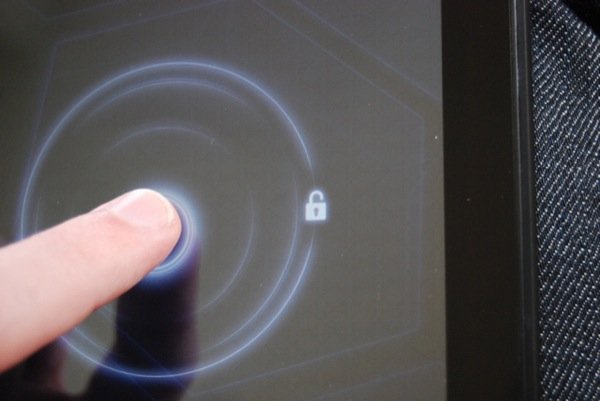Judges in a top German court ruled against Apple's European "swipe-to-unlock" patent on Tuesday, stating that it didn't meet high enough standards to secure patent protection.
The decision reinforces findings by an earlier patent tribunal in favor of Lenovo's Motorola Mobility unit, according to Bloomberg. The Motorola lawsuit originally had Samsung as another plaintiff, but the latter company ultimately withdrew.
"This user-friendly display was already suggested by the state of the art," the court said today. "The contested patent thus isn't based on an invention."
Apple managed to secure a German court injunction against Motorola in 2012, claiming that the company's implementation of Android violated its unlocking concept. The associated lawsuit is still pending on appeal, but should soon be able to move forward thanks to today's ruling.
Both American and European "slide-to-unlock" patents were once instrumental in Apple's legal campaign against Android device makers, borne out by former CEO Steve Jobs' accusations that the OS stole ideas from the iPhone. In May 2014 Samsung was found guilty of infringing the U.S. version of the patent, but earlier this year an appeals court panel voiced skepticism that Apple had encountered "irreparable harm" from the patent's misuse — particularly since Samsung has long since stopped selling products that allegedly violate it, and Apple has licensed the technology to other parties.
 Roger Fingas
Roger Fingas








 Bon Adamson
Bon Adamson
 Marko Zivkovic
Marko Zivkovic
 Wesley Hilliard
Wesley Hilliard
 Amber Neely
Amber Neely

 Malcolm Owen
Malcolm Owen
 William Gallagher
William Gallagher





-m.jpg)



68 Comments
Omg. Apple invents the gesture in this particular use case where it had never been done before and now that everyone wants to copy they get ripped. Plain sucks.
"High enough standards" = Minimum bribe threshold.
...an appeals court panel voiced skepticism that Apple had encountered "irreparable harm" from the patent's misuse -- particularly since Samsung has long since stopped selling products that allegedly violate it, and Apple has licensed the technology to other parties.
Yeah, because iPhone-cloners like Samsung use Apple's tech to make it look/feel like an Apple product, and then after they stole - make their money, the go elsewhere.
What the hell is the use of a patent, if they can't enforce it? Apple made/redefined/etc.. the modern touchscreen-OS interface and now the courts (not the patent office) are now the ones deciding to what degree a patent must be violated before the patent can be used? Bullsh!t.
This is happening because the software industry is anti-patent. And Apple lets its defense lawyers trash the patent system just as much as any other big tech company. I've been complaining about this for years. Nobody likes to pay royalties on patents, but you can't have it both ways. You can't expect the courts to apply one standard when the innovation comes from a non-practicing inventor and apply a different standard when it's a big company. Courts don't play favorites, and we wouldn't want them to.
While all the components of this invention were, to be fair, already present -- and I'm sure "keycards" were around at the time, so it wasn't the most original thing ever created, but it was a first for that application. That's essentially most of what Apple does -- takes existing ideas and synthesizes them into new yet intuitive inventions. Touch ID is a perfect example. Fingerprint readers have been around for ages, but once you put it on the iPhone the "slide to unlock" thing seems childishly primitive by comparison. And Apple went further and invented a mobile payment system based on Touch ID that far surpasses the security of all current payment systems -- but I suppose there's no valid patent in that either, since every part of it existed beforehand. I think the patent courts and patent system punish original thinking as much as they reward it sometimes.